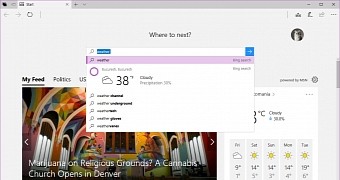Earlier this week, it has emerged that Google planned to develop a built-in ad blocker for Chrome browser, and now it looks like Microsoft is part of the project as well.
A report from AdAge reveals that the so-called Coalition for Better Ads, which includes both Google and Microsoft as active members, is looking into creating an ad blocker that would be adopted at a wider scale, with the top developers to offer the technology built into their browsers.
This means that while Google is believed to be the pioneer of this new browser feature, Microsoft is also involved in its development, and if it ever comes to the market, there’s a good chance that Edge is getting it too in Windows 10.
Microsoft has replaced Internet Explorer with Edge browser as the default Windows 10 browser, and although third-party extensions are available to block intrusive ads, the project could in the end help provide a cleaner browsing experience without the need for any add-ons.
Microsoft Edge ad blocker
According to reports, Google is particularly interested in developing built-in ad filters as a method to stop paying fees to have its ads whitelisted by ad blocker companies, a deal that’s believed to be worth millions of dollars given that the search firm is one of the world’s biggest advertisers online.
As far as Microsoft is concerned, the software giant has never confirmed plans for a built-in ad blocker, though there’s no doubt this could contribute to a better experience in Edge, a browser that’s yet to gain traction. Adoption of Edge is dramatically impacted by its limited availability in Windows 10, with some 5 percent of the world’s PCs now running it, but Microsoft promises continued improvements in the coming months.
It’s believed that the new ad filtering system created by the coalition could be implemented by the end of the year, and with Windows 10 Redstone 3 coming in September, there’s a good chance that Microsoft might be among the first to offer it to adopters of its latest operating system.
We’ve reached out to the company for more information on this and we’ll update the article when an answer is offered.

 14 DAY TRIAL //
14 DAY TRIAL //